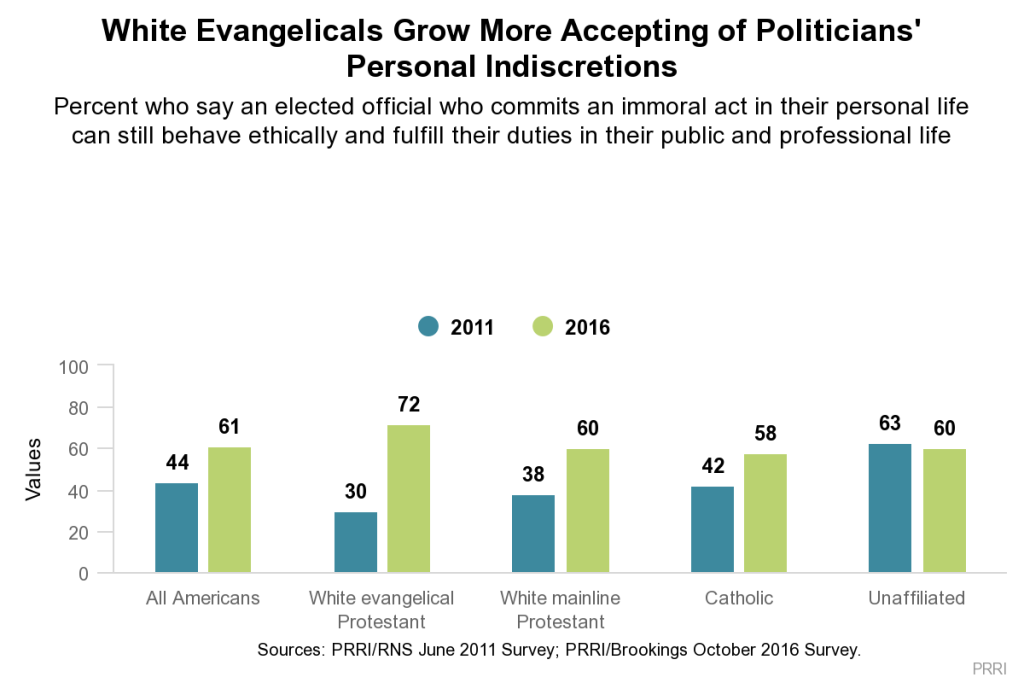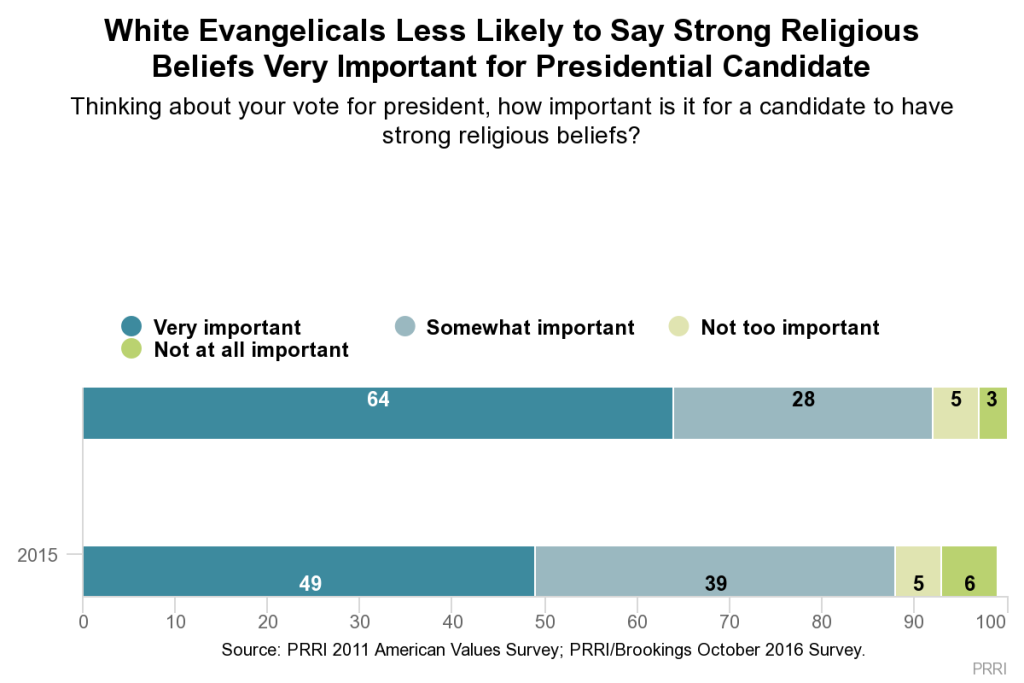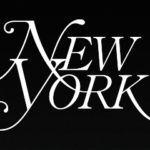Clinton Maintains Double-digit Lead over Trump
With only three weeks remaining in the 2016 campaign, Hillary Clinton maintains a double-digit lead over Donald Trump among likely voters (51% vs. 36%, respectively).1 Support for Clinton among likely voters has increased significantly over the past few weeks. In late September, Clinton was tied with Trump among likely voters (43% vs. 43%, respectively).

Democratic voters are more likely to support Hillary Clinton than Republican voters are to support Donald Trump. Ninety-five percent of Democratic likely voters say they are supporting Clinton while roughly nine in ten (87%) Republican likely voters report they are supporting their party’s nominee. Clinton has opened up a substantial lead with independent voters, who are supporting her by a 16-point margin (46% vs. 30%, respectively). Notably, roughly one in four independent voters say they will be casting a ballot for a third-party candidate (17%) or report no candidate preference at all (7%).
Clinton continues to benefit from her overwhelming lead among female likely voters, who favor Clinton over Trump by a margin of nearly two to one (57% vs. 31%, respectively). Male likely voters are nearly evenly divided in their candidate preferences, with roughly four in ten supporting Clinton (44%) and Trump (40%). This represents a stark reversal from last week, when Trump held a considerable advantage over Clinton among male voters (48% vs. 37%, respectively).
Currently, nearly seven in ten (69%) white evangelical Protestant likely voters express support for Trump, while only 15% say they are supporting Clinton. Support for Trump among white evangelical voters has remained unchanged over the last two weeks. Trump also holds a lead over Clinton among white mainline Protestant voters (49% vs. 37%, respectively). White Catholic voters are evenly divided between Trump and Clinton (44% vs. 44%, respectively), but Catholic voters overall favor Clinton by a considerable margin (57% vs. 33%, respectively). Religiously unaffiliated voters are leaning heavily towards Clinton (69% vs. 17%, respectively), mirroring the advantage Trump enjoys among white evangelical Protestant voters.
There are sizable differences in voter preferences by race and educational attainment. Nonwhite voters are supporting Clinton over Trump by a wide margin (76% vs. 17%, respectively). White voters are divided in their support with roughly equal numbers favoring Clinton (40%) and Trump (43%). However, white voters without a college degree favor Trump by a 20-point margin (50% vs. 30%, respectively), while white college-educated voters prefer Clinton over Trump by a similar margin (53% vs. 34%, respectively).
Democratic congressional candidates have a significant lead over their Republican opponents in the generic ballot. A slim majority (52%) of likely voters report they are currently supporting or leaning towards voting for the Democratic candidate in their congressional district, while 40% say they will be supporting the Republican candidate.
More Americans, especially White Evangelicals, Now Say Personal Immorality Not Disqualifying for Elected Officials
Compared to 2011, Americans today are more likely to say elected officials can still perform their public duties in an ethical manner even if they have committed immoral personal acts. More than six in ten (61%) Americans say immoral personal behavior does not preclude public officials from carrying out their public or professional duties with honesty and integrity; only 29 percent of the public disagree. In 2011, the public was much more divided over the connection between personal behavior and professional ethics. Forty-four percent of Americans said public officials could still conduct themselves honorably in their professional duties even if they had engaged in immoral behavior in their personal life; an equal number (44%) of Americans disagreed.
Across the political spectrum, Americans today are less likely to believe personal transgressions prevent public officials from performing their duties well. Seven in ten (70%) Republicans and more than six in ten Democrats (61%) and independents (63%) say public officials can behave ethically in their professional roles even if they acted immorally in their personal life. Notably, in 2011 only 36% of Republicans agreed, compared to nearly half of Democrats (49%) and independents (46%).
No group has shifted their position more dramatically than white evangelical Protestants. More than seven in ten (72%) white evangelical Protestants say an elected official can behave ethically even if they have committed transgressions in their personal life—a 42-point jump from 2011, when only 30 % of white evangelical Protestants said the same. Roughly six in ten white mainline Protestants (60%) and Catholics (58%) also believe elected officials can behave honestly and ethically in their public roles regardless of their personal behavior. In 2011, only about four in ten white mainline Protestants (38%) and Catholics (42%) held this view. Notably, religiously unaffiliated Americans have remained constant in their views; six in ten (60%) believe elected officials who behave immorally in their personal lives can still perform their duties with integrity, compared to 63% in 2011.

White Evangelical Protestants Less Likely to Prioritize Strong Religious Beliefs
Fewer Americans today say it is important that the candidate they are supporting for president has strong religious beliefs. Currently, a majority of the public says it is either very (29%) or somewhat (29%) important that a candidate has strong religious beliefs. Four in ten (40%) Americans say this is not too important or not at all important to them in making their voting decision. In 2011, nearly two-thirds (66%) of the public said it was important to them that the candidate they were supporting has strong religious beliefs, including 39% who said it was very important.

Among every religious group fewer say that having strong religious beliefs is a priority in a candidate for president, but white evangelical Protestants have shifted their views more than any other group. Today fewer than half (49%) of white evangelical Protestants say it is very important that a candidate have strong religious beliefs, while nearly two-thirds (64%) expressed this view in 2011. Today, roughly one-third (34%) of Catholics and one in five (20%) white mainline Protestants say strong religious beliefs are very important in a candidate. In 2011, four in ten (40%) Catholics and nearly three in ten (29%) white mainline Protestants said this quality was very important in a candidate for president. Even religiously unaffiliated Americans are less likely to say that strong religious beliefs are very important today than in 2011 (7% vs. 16%, respectively).
Endnotes:
1 Likely voters include all registered voters who report that they are absolutely certain to vote in this election. All references to “voters” are “likely voters” in this analysis.
Recommended Citation:
Jones, Robert P., and Daniel Cox. “Clinton maintains double-digit lead (51% vs. 36%) over Trump.” PRRI. 2016. http://www.prri.org/research/prri-brookings-oct-19-poll-politics-election-clinton-double-digit-lead-trump/.


